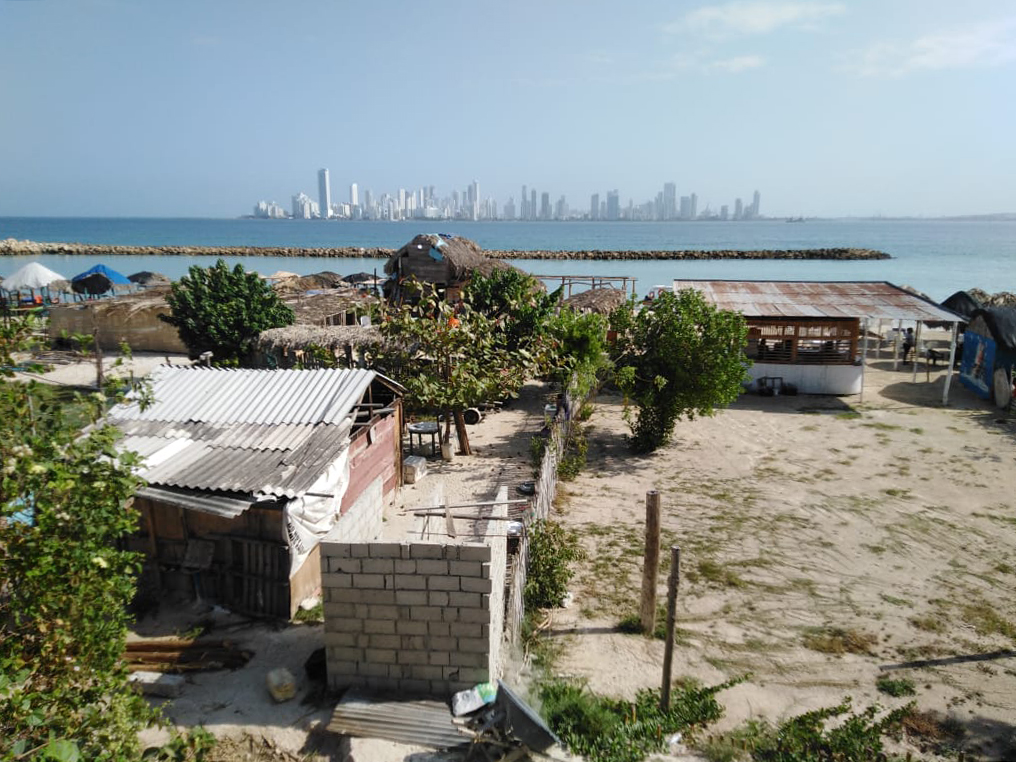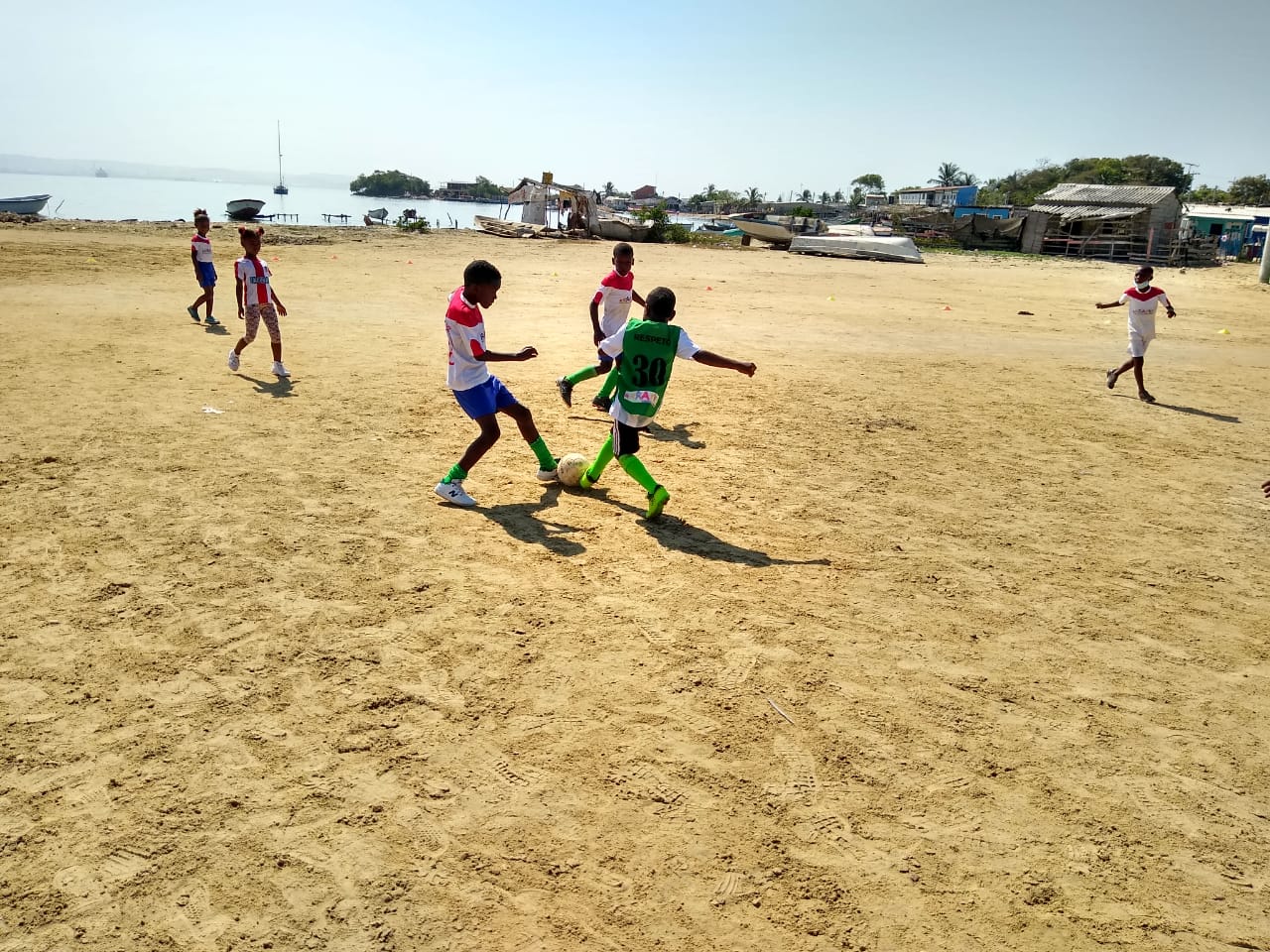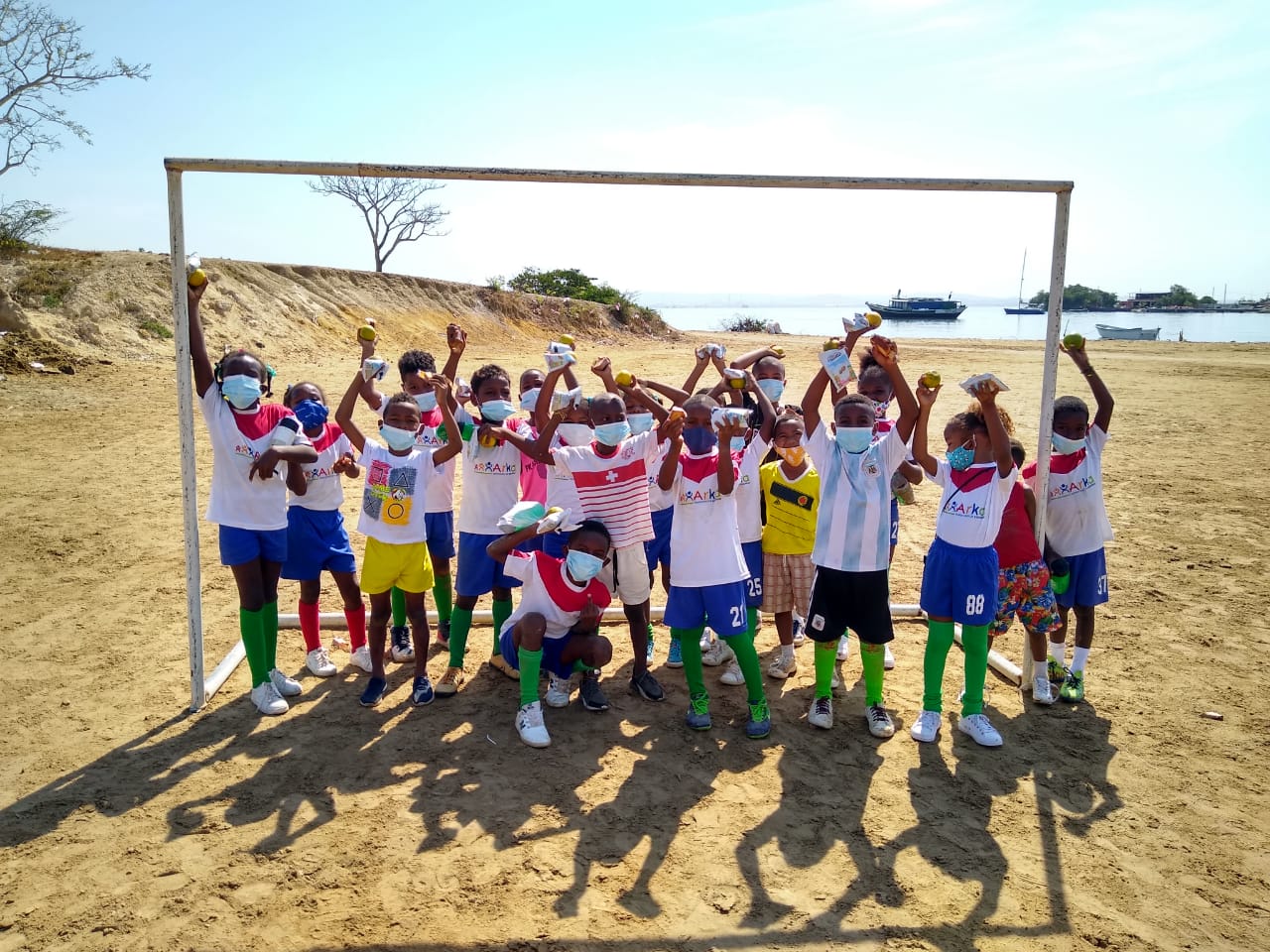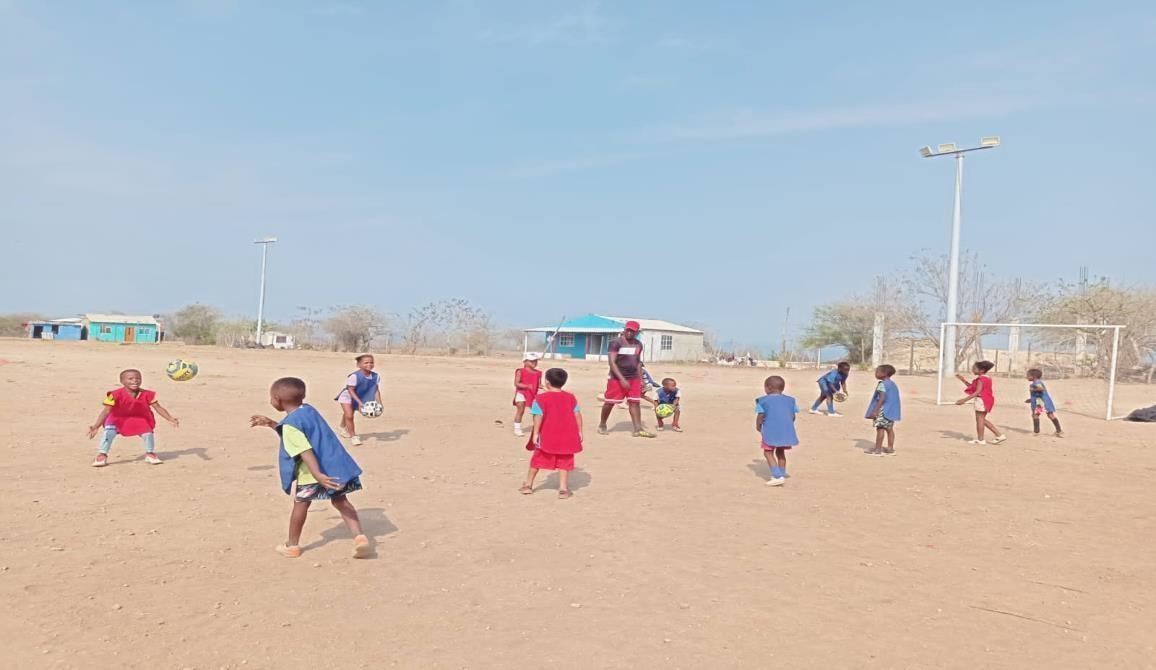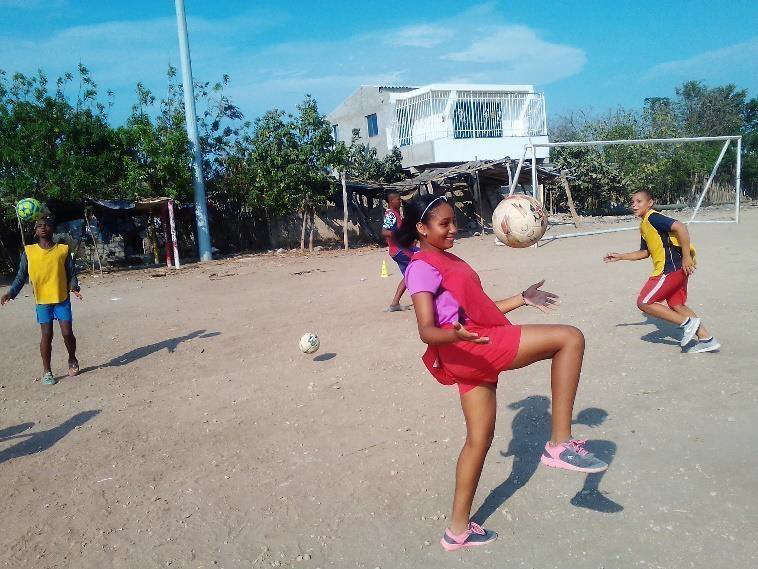This project offers environmental education and activities to underserved kids on Tierra Bomba Island, near the city of Cartagena. Our nonprofit partner Fútbol con Corazón (Soccer with Heart) uses soccer to teach kids teamwork, problem-solving, leadership, and respect for the environment.
Colombia has 1,800 miles of coastline. Its ocean waters are home to 2,600 marine species, including six of the world’s seven marine turtle species. But Tierra Bomba Island faces serious environmental problems, caused by:
- Coral-destroying fishing practices, including dynamite and trawling
- Poverty
- Lack of services, including no adequate waste collection or treatment
- Unregulated development
- Sea level rise and erosion, which have already washed away two streets
These factors and the decline of traditional fishing and agriculture have combined to create a culture of disregard for the environment. The residents of Tierra Bomba are primarily farmers and fishers. Youth there have few educational, enrichment, or employment opportunities. It is clear that unless attitudes and practices change, the future of the island’s ecosystems—and so of its inhabitants—is bleak.
Making just these kinds of changes is the mission of Fútbol con Corazón. About 200 boys and girls in Tierra Bomba, from 5 to 16 years old, will participate in FCC’s special brand of soccer. The program stresses respect, equity, and honesty. Teams draw up a code of conduct before each match, girls and boys play together, and everyone gets the same amount of playing time.
The program also brings environmental education, including field trips, beach cleanups, and mangrove planting. Kids learn about their amazing coastal environment and how to conserve it. They also acquire skills that may help them find jobs in wildlife-based tourism.
The community is setting aside about two and a half acres as an outdoor environmental classroom or living museum. Maintenance will be financed by small fees charged to tourists and tour operators.


